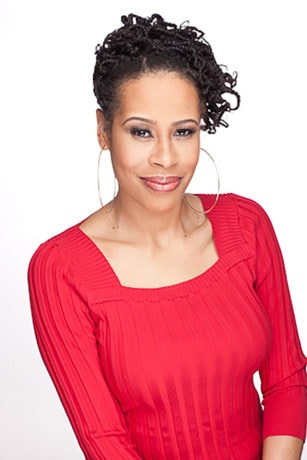In his five years on DC stages, actor Justin Weaks has played an impressive array of characters written by contemporary African American playwrights. It is a dream he feared would never become reality as a college student studying theater in Greensboro, North Carolina.
“In college we basically studied two black playwrights: August Wilson and Lorraine Hansberry.” Weaks recalls. “I mean, I love August and Lorraine, but I didn’t want to spend my entire career performing Fences and Raisin in the Sun.”

Now eight years out of college, Weaks is a leading player on DC’s theater scene, and he did perform in Fences this season, playing Troy Maxson’s son Cory in the Ford’s Theatre production. But this classic was flanked by numerous plays written by today’s leading African American writers: authors such as Jason Reynolds, Marc Bamuthi Joseph and Branden Jacobs-Jenkins whose work grapples with what it means to be a young African American in the early 21st century. And it was those works – like Dominique Morisseau’s Pipeline, which Weaks will appear in this month – that led Weaks to make DC his theater home.
Weaks had originally planned to relocate to NYC after college, and he did spend some time there (following a tour with Olney Theatre’s National Players and an internship at the Cincinnati Playhouse). But in 2015, he was offered the lead role in Nathan Alan Davis’s Dontrell, Who Kissed the Sea at DC’s Theater Alliance. The allure of Dontrell, Who Kissed the Sea, a fresh new play about an 18-year-old man who dreams of reuniting with an ancestor who jumped off a slave ship into the sea, was too enticing to resist.
“The fact that Dontrell was even a play… I had never read anything like that before and it shocked me that these stories were being written and produced. That was a huge plus for me as far as DC was concerned. I was like ‘y’all, DC is producing this stuff? I’m here for it!’”
At the time, Weaks didn’t feel the same opportunities to engage with plays written by African American playwrights existed in NYC. “You look at NY now, and stories written by women and people of color are being produced more but that wasn’t happening five years ago. There is still a lot of change that needs to happen, but it’s amazing how much has changed in this short time.”
In Pipeline, Weaks plays Omari, a high schooler sent by his parents to a college prep school rather than the struggling city school where his mom teaches. At the prep school, Omari finds himself one of few people of color. When a teacher engages in behavior that makes Omari feel like the token black student, he lashes out, unleashing consequences that could have a dire effect on his future while also – through Morisseau’s skillful literary nods to Gwendolyn Brooks and Richard Wright – echoing Americas long history of racial stereotyping and reminding us that while the face of racism has changed in America, it is still an ever-present reality for families like Omari’s who struggle to keep their children safe in a society stacked against them.

Pipeline takes place over two days following the altercation with Omari’s teacher. We see the ramifications of the incident on Omari, his mother, father and girlfriend. “Omari is a young man just trying to be himself and that is hard as a black man when you have so many people telling you who you are or what you are expected to do or become.”
Like Omari, Weaks attended a predominantly white college prep school from kindergarten through high school near his hometown of Concord, North Carolina. Weaks draws on this experience in bringing life to Omari. “I’ve always been a deeply sensitive person and I learned quickly as a black boy that there are certain things you are expected to hide in order to meet society’s expectations. I think where we see Omari in the play, he’s just exhausted of the hiding. He’s exhausted of not being able to just be.”
Weaks already senses that Omari will be one of many roles that will stay with him for a long time. “Being in DC has really given me clarity on my responsibility as a human and an artist,” he says. “Being here and being exposed to the writing of these playwrights has allowed me to give a voice to a particular experience of blackness that I know.
“It’s important for me to show that we are not a monolith,” he continues. “That’s a big force in my work and how I interpret the work of black writers.”
Pipeline plays January 15 through February 16 at Studio Theatre – 1501 14th Street NW, in Washington, DC. For tickets, call (202) 332-3300 or go online.




